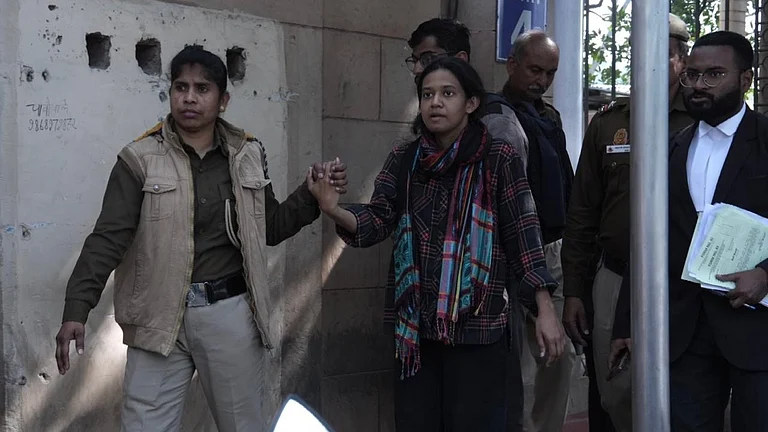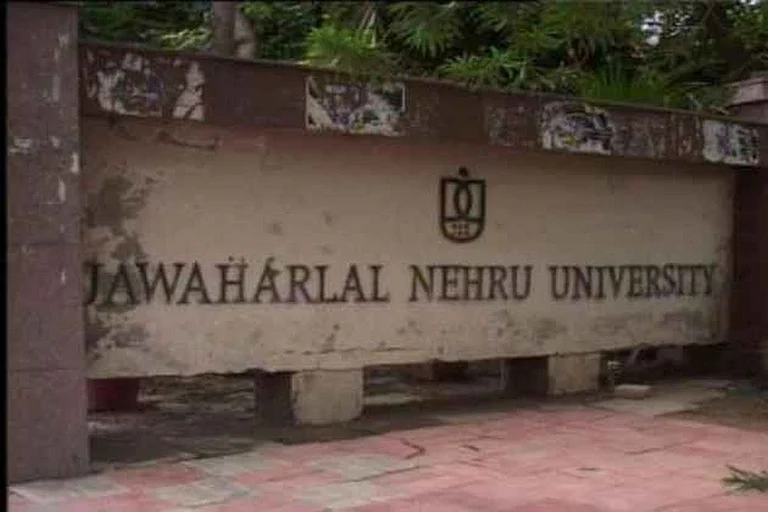
Left Unity alliance of AISA, SFI and DSF wins all four JNUSU posts in 2025–26 polls.
ABVP loses ground a year after ending Left’s decade-long dominance in JNU.
Over 67% of students voted as the campus reaffirmed its tradition of active politics.
The Left Unity alliance of the All India Students’ Association (AISA), Students’ Federation of India (SFI) and Democratic Students’ Federation (DSF) won all four central panel posts in the Jawaharlal Nehru University students’ union elections, the university’s election committee said, restoring its electoral dominance on a campus known for political debate.
Aditi Mishra (President), Kizhakoot Gopika Babu (Vice-President), Sunil Yadav (General Secretary) and Danish Ali (Joint Secretary) defeated the Akhil Bharatiya Vidyarthi Parishad candidates Vikas Patel, Tanya Kumari, Rajeshwar Kant Dubey and Anuj, respectively. Mishra beat Patel by 449 votes, polling 1,937 against Patel’s 1,488.
Mishra, a PhD scholar at the Centre for Comparative Politics and Political Theory, School of International Studies, is from Varanasi and researches gendered violence and women’s resistance in Uttar Pradesh since 2012. She described the result as “a mandate against hooliganism, Islamophobia, casteism and misogyny, and in favour of quality and low-cost education.”
Kizhakoot Gopika Babu of SFI won the vice-president’s post with 3,101 votes, defeating Tanya Kumari by 1,314 votes. A PhD student at the Centre for the Study of Law and Governance, she joined JNU in 2022 after completing a master’s at Miranda House and campaigned to reopen Barak Hostel and resume the JNUSU elections after their suspension.
Sunil Yadav of DSF secured the general secretary’s post with 2,005 votes against Rajeshwar Kant Dubey’s 1,901, while Danish Ali of AISA won the joint secretary’s post by 286 votes. Yadav is a first-generation graduate from Bedipur village in Uttar Pradesh’s Basti district and a PhD scholar at SIS. Ali is a first-year PhD student from the School of Social Sciences, from Narsinghpur in Madhya Pradesh.
Around 9,043 students were eligible to vote and turnout was 67 per cent, lower than 70 per cent in 2024–25 and 73 per cent in 2023–24, the committee said. The campus saw queues, chants, drumbeats and campaign songs as students voted for the central panel and school councillors.
According to PTI, the result ended a brief period when the ABVP had broken the Left’s hold. AISA and SFI had contested separately in the previous election, a split that helped the ABVP win the joint secretary’s post in 2024–25 — its first central panel seat in ten years. The ABVP had hailed that outcome as a “historic shift” in JNU politics. The outcome gives the Left full control of JNU's central student body again.
The ABVP had earlier won a central panel seat in 2015 when Saurabh Sharma became the first ABVP candidate in 14 years to secure a post as joint secretary, and its only presidential victory before that was in 2000–01 when Sandeep Mahapatra won the chair.
For most of JNU’s history the Left has dominated both organisationally and electorally. Since 2015 its constituent groups have usually contested together under the United Left banner, surviving internal disagreements and generational change.
“Every election at JNU is not just about power; it’s a dialogue about what politics should mean,” said a PhD student, reflecting on the outcome.
PTI reported that while the Left has reasserted itself, the ABVP has expanded its base by campaigning on performance and nationalism. Smaller groups such as BAPSA, PSA and Chhatra RJD continue to attract students.
JNUSU has produced national figures including Sitaram Yechury, Vijoo Krishnan, Shakeel Ahmed Khan, Syed Naseer Hussain and Kanhaiya Kumar. Despite the dip in turnout, campus democracy appeared robust, with debates and activism across hostels, dhabas and academic spaces.
(With inputs from PTI)





























